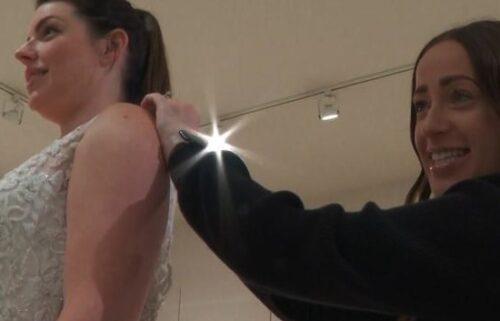5 couples allege Texas fertility clinic knowingly implanted dead or damaged embryos
By Alex Bozarjian
Click here for updates on this story
HOUSTON (KTRK) — Aspire Houston Fertility Institute was slapped with a class action lawsuit Tuesday by couples who claim they were lied to about their chances of becoming pregnant.
A court filing alleges that the clinic knowingly implanted at least five hopeful mothers with dead or damaged embryos.
The lawsuit adds that this happened due to a massive laboratory failure at the company’s Piney Point facility in west Houston.
Nicole Alarcon and her high school sweetheart husband Agustin said “I do” back in 2020. They tried for the next four years to have a baby naturally until ultimately turning to fertility treatments.
Initially, it was a success. Alarcon was told she produced 14 embryos viable for transfer.
“Man, we were just so excited because for us, that meant 14 chances of getting pregnant, and we thought surely, we will get pregnant with 14 embryos,” Alarcon said.
She added that she received three transfers from the Aspire Fertility Institute. She said two were unsuccessful and one resulted in a miscarriage.
She underwent more testing, assuming it was her own biological failure.
“Shortly after, we got a call from our doctor, and he told us that our embryos- that there was some sort of lab issue,” Alarcon said.
The information shared on the call ultimately led the couple to join a class action lawsuit.
According to the court filing, the so-called lab issue affected embryos retrieved and stored at its Piney Point facility in February and March this year.
The lawsuit claims it resulted from a defective freezing agent used to preserve the viable tissue.
Attorneys even hired their own fertility doctors who examined pictures of Alarcon’s embryos throughout the process. The doctors said there was evidence of cell death early on.
“Aspire knew that they had a problem because pregnancy rates dropped to nearly zero,” attorney Rob Marcereau, who represents the plaintiffs, said.
In a statement to ABC13, Aspire acknowledged a slight decrease in thawing survival rates for embryos frozen in its Houston Piney Point laboratory during the timeline outlined in the lawsuit:
“Immediately upon identifying this potential issue, we halted use of this media. Upon returning to our previously used media, our survival rates returned to our industry-leading standards. No other Aspire-affiliated laboratory was impacted by this issue.
To AspireHFI’s knowledge at the time the issue was limited to a decrease in embryo survival rates at the time of embryo thawing. Indeed, there are numerous healthy ongoing pregnancies from embryos successfully thawed that had been frozen during the dates in question and there was no reason to believe that any embryos that survived thawing would be negatively impacted.”
“To find out this was all essentially for nothing, and we’d have to start over as if we never did IVF in the first place, it is a really hard pill to swallow,” Alarcon said.
According to her, she wasn’t told her embryos were no good until seven months after they were taken from her body and stored.
“I think for us, that is the biggest reason we are coming out and sharing our story because I still believe there are so many women that don’t even know,” she said.
Aspire said there are numerous healthy ongoing pregnancies from embryos successfully thawed that had been frozen during the dates in question, and there was no reason to believe those pregnancies would be negatively affected.
The four other couples in the lawsuit wished to remain anonymous, but attorneys said that for some, this was the end of the road.
“A fertility clinic is supposed to help you get pregnant, and we put a lot of trust in them as the experts, and Aspire completely broke our trust and so many other families,” Alarcon said.
AspireHFI said it’s dedicated to the well-being of its patients and their tissues. It denies ever knowingly transferring non-viable tissue and calls the allegations false and defamatory.
Please note: This content carries a strict local market embargo. If you share the same market as the contributor of this article, you may not use it on any platform.


